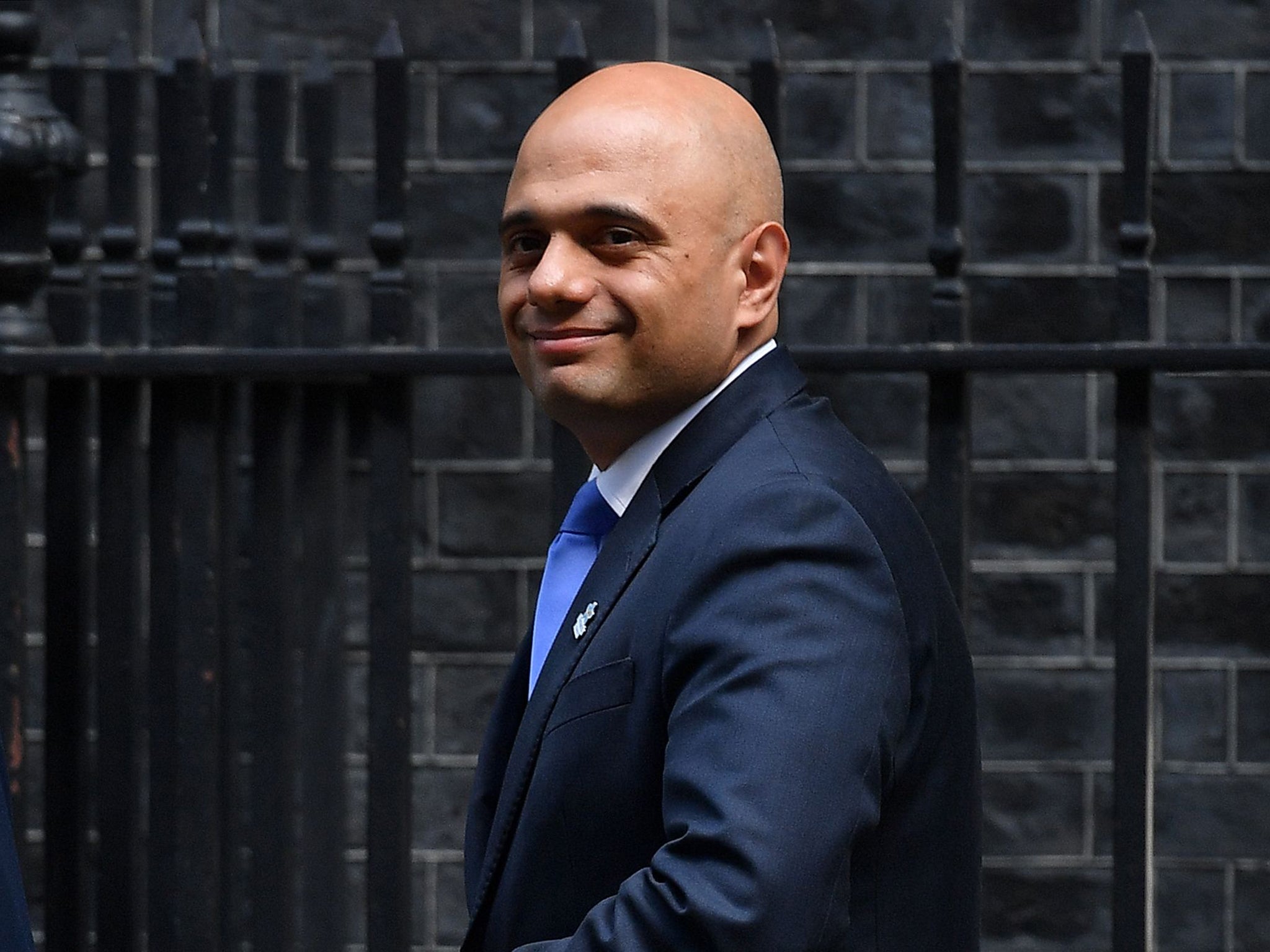Calls for Sajid Javid to renew Britain’s pledge to help Syrian refugees
Jordanian businessman Hasan Ismaik pushes home secretary to recommit to housing 20,000 Syrian refugees

Calls for the Home Office to renew Britain’s pledge to help Syrian refugees have resurfaced following Amber Rudd’s departure and Sajid Javid’s appointment as foreign secretary.
Hasan Ismaik, chairman of Marya Group and one of the Middle East’s most successful and prominent businessmen, has pushed for Mr Javid to recommit to his department’s pledge to house 20,000 of the most vulnerable victims of the Syrian refugee crisis by 2020 and beyond.
As the Home Office signals a move away from the “hostile environment” policy in the wake of the Windrush scandal, Mr Ismaik said the “protection of the most vulnerable victims of the Syrian civil war” was of utmost importance, citing David Cameron’s pledge to rehouse vulnerable refugees as part of the vulnerable persons resettlement scheme (VPRS).
The scheme initially won praise from Unicef, UNHCR and the International Organisation for Migration (IOM), but only half of the most vulnerable refugees have been granted safety and security in the UK so far.
Mr Ismaik said: “The VPRS scheme should be a source of pride for British people, a reminder that the UK is a welcoming sanctuary to those with nowhere else to go, offering a safe and legal home to the most vulnerable refugees of the Syrian crisis while preventing countless needless deaths from illegal migrant crossings”.
The scheme is part of the UK’s legacy of aid towards the Syrian refugee crisis.
Having already committed £2.46bn to projects since 2012, the UK is one of the largest global donors.
Speaking in Qab Elias, an informal tented settlement on the Syrian-Lebanese border, Ms Rudd had affirmed her commitment that, by 2020, 20,000 of the most vulnerable victims of the Syrian refugee crisis would be granted UK asylum.
She met with dozens of refugee families in the settlement, including one family preparing to be rehoused in the UK, a reminder of the tangible human impact of the UK’s resettlement scheme.
But as 2020 approaches, the VPRS presently has no plan about what happens next, and the process of resettlement in the UK is often haphazard and arbitrary.
Mr Ismaik continued: “The Home Office has not always had a clean conscience in its treatment of migrants and vulnerable people. The Windrush scandal has uncovered the tragic treatment of some foreign migrants.
“Evidence of steps to delegitimise UK citizens are a stark reminder that Home Office policy has not always been fair and kind to those in need.
“Working with the UNHCR, UNICEF and IOM, the UK could shelter thousands more Syrian refugees, further offering sanctuary to survivors of violence and torture, those who require urgent medical attention, as well as women and children at risk”.
The Home Office’s hostile environment policy looks to isolate, marginalise and criminalise “illegal” migrants. However, critics argue it has had a devastating effect on legal migrants too, tearing families apart and wrongly detaining innocent migrants.
Mr Ismaik said it was time for policies such as these to end.
“Sajid Javid’s disownment of the hostile environment policy is to be welcomed, but the new home secretary must now embrace concrete policies of openness and tolerance towards vulnerable refugees,” he said.
“The VPRS is the best existing example of a compassionate and meaningful Home Office policy.
“Under the new stewardship of Sajid Javid, I hope the Home Office will continue its support and I hope that the home secretary will publicly re-commit to its the goal to reaffirm its position as a world leader in humanitarian aid and support”.
SWNS
Join our commenting forum
Join thought-provoking conversations, follow other Independent readers and see their replies
Comments